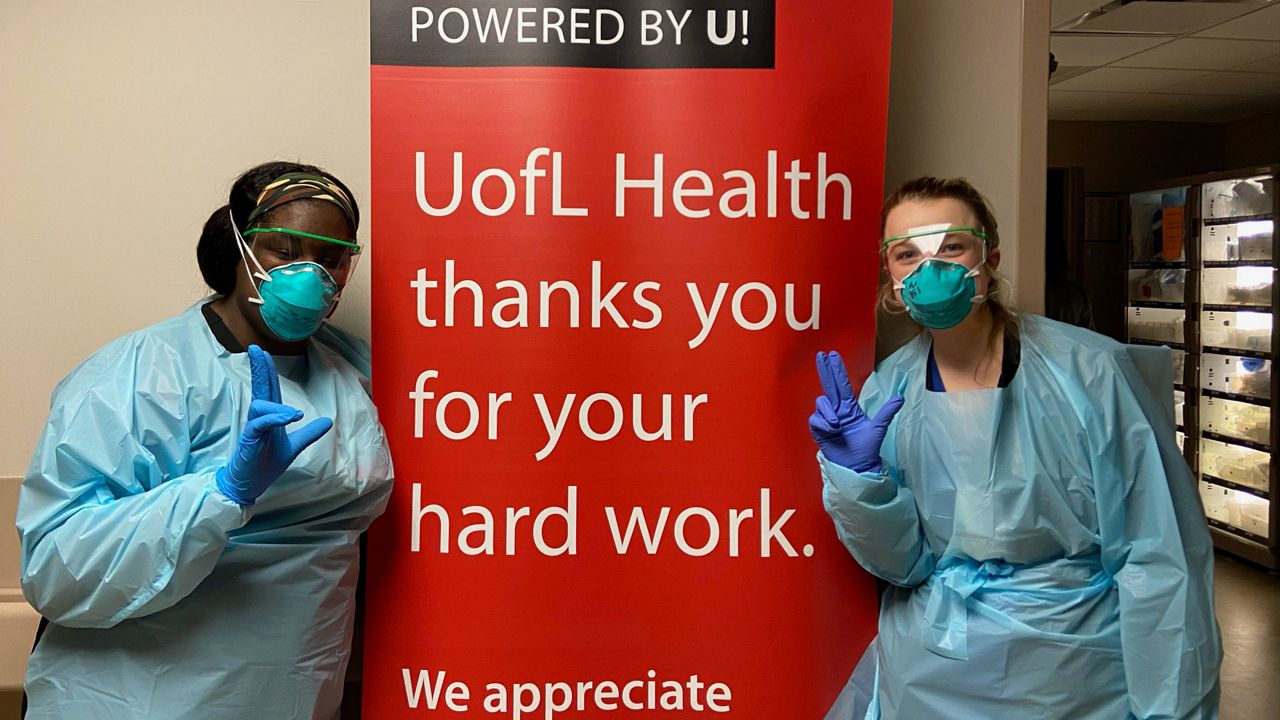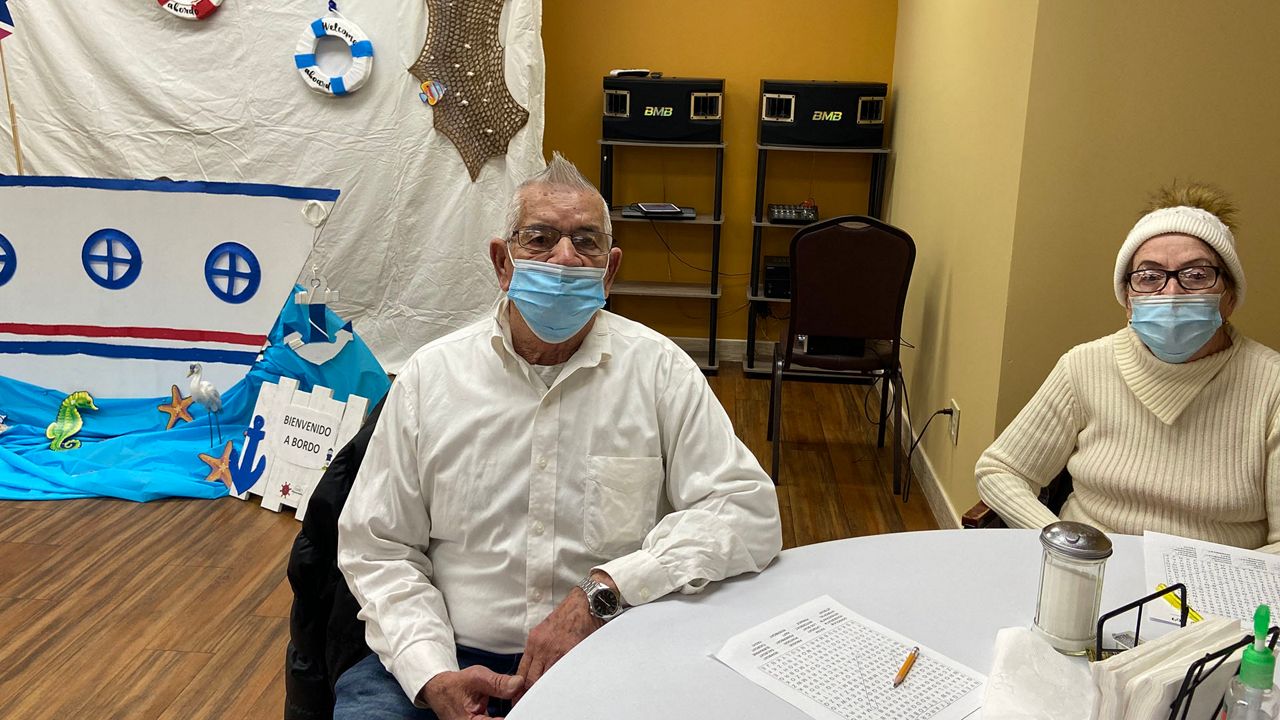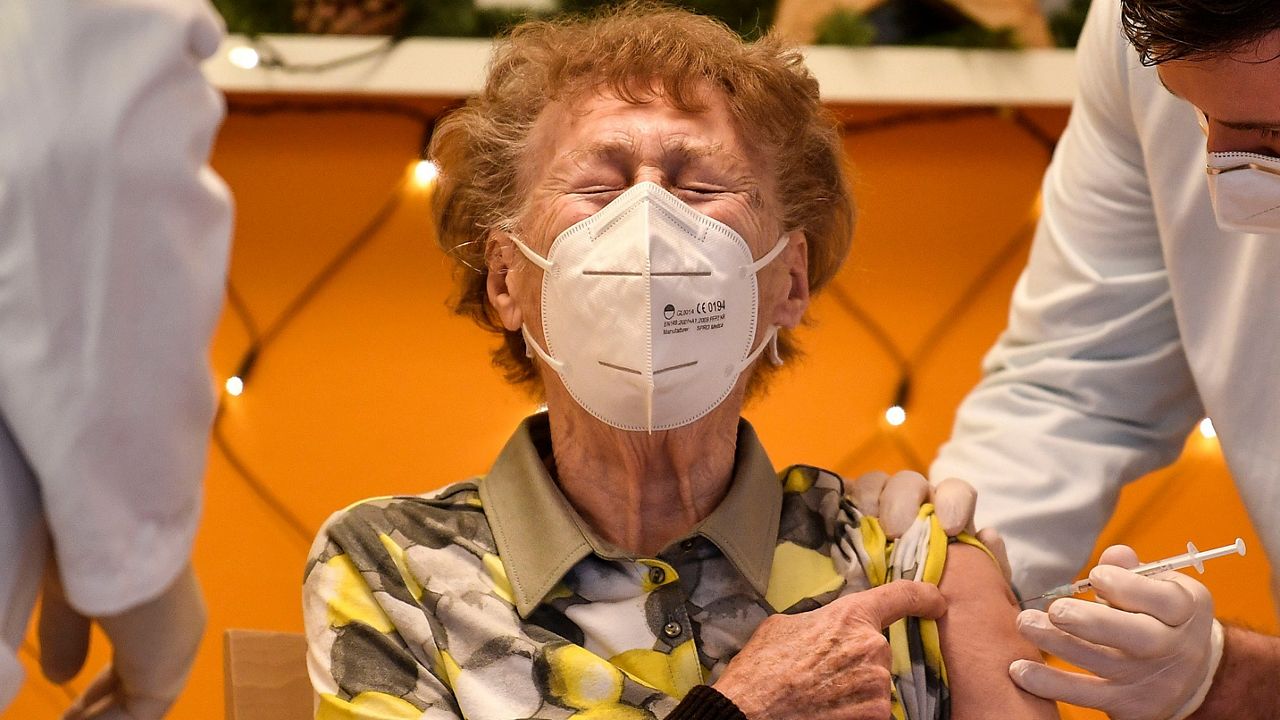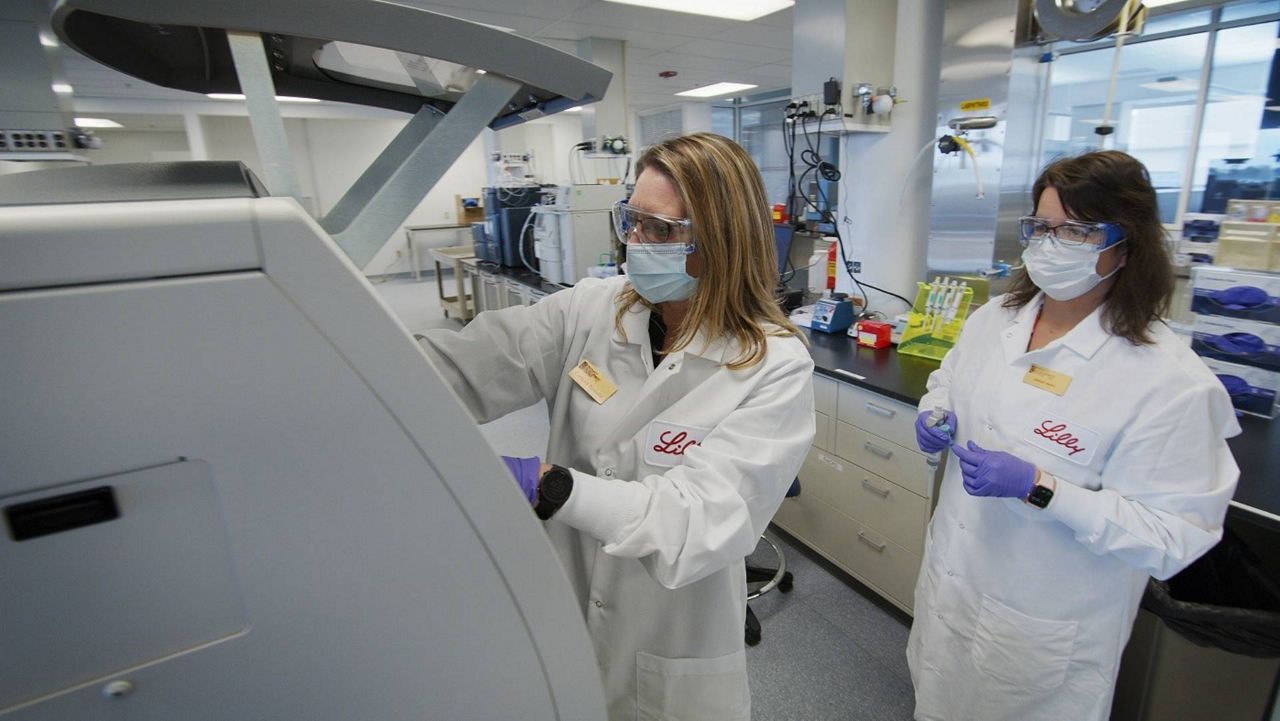LEXINGTON – Registered nurse Alexis Harbsmeier has worked her entire career with COVID-19 patients.
She graduated from the University of Louisville in December of 2019 and went to work in July of 2020 in the throes of what was then a four-month-old and rapidly worsening global pandemic.
What You Need To Know
- Registered nurse graduated in December 2019
- Began working in July 2020
- Has worked only with COVID-19 patients
- She feels as though it will help her in the future
Harbsmeier admits the nursing career she envisioned while working toward her degree has yet to come to fruition.
But she also understands her obligation to patients no matter their ailment and has remained committed over her first nine months as a nurse.
“People are just really burnt out. It's been really, really rough,” she said. “A lot of these patients are really sick and it's draining. A lot of times you leave work really defeated because there's only so much you can do.”
Just going to work is rather taxing, she said.
Working at University of Louisville Hospital’s dedicated COVID-19 unit requires considerable preparation with the required personal protective equipment, such as an N95 mask, face shield, temperature checks, gloves, and more. She said all the COVID-19 unit nurses also limit the time in patients’ rooms to decrease exposure.
“We have computers we usually take into patients’ rooms, but we try not to even take those in just to limit the amount of exposure,” she said. “We're exposing ourselves when we're at the nurse's station and everything. We don't want to take in much equipment if we can keep from doing it.”
For now, Harbsmeier and her fellow first-year nurses understand the times in which they are working and realize things are not likely to change any time soon.
“We're thinking we will at least be doing what we are doing now, for the most part, until 2022,” she said.
“Just like everyone else, we're really hoping the numbers go down enough that instead of having an entire unit just for COVID patients, it's going to be more like maybe one person here and there that has COVID instead of whole unit full COVID patients. Unfortunately, as we all know, that hasn’t happened. We have seen a little decrease in our number of COVID patients but it still fluctuates dramatically.”
Harbsmeier knew as a nurse she wanted to work with adults.
The COVID-19 wing where she currently works her 7 p.m.-7 a.m. shifts, three days a week, in the 404-bed, nine-story hospital was originally a stroke and neurology unit before being converted to all COVID-19 patients, which is something she said will better prepare her for the future.
“I feel like I've gained a lot of experience from working with these patients and nurses,” she said. “Each COVID patient has their own room and each nurse on every shift has about four patients. Many of these patients have been really sick and it's been too much to have more than four patients even with some of those patients being in the hospital for up to 20 days – hospitalization with COVID is a long stay for a lot of people.”
When the pandemic started getting worse, Harbmeier, who has received the COVID-19 vaccine, said there were likely some recently graduated nurses that opted to wait until the pandemic was over before starting their careers, which is an idea she entertained.
But she said she is glad she did not wait.
“I graduated in December (2019), and I kind of was waiting to get a job, and then COVID happened and I didn’t know what I was going to do,” she said. “Eventually, I decided I need to get a job and I did. It's been hard, but much more rewarding taking care of a lot of these patients. No matter what happens in my career I can say I started out during COVID and I really do think it'll help me going forward."









